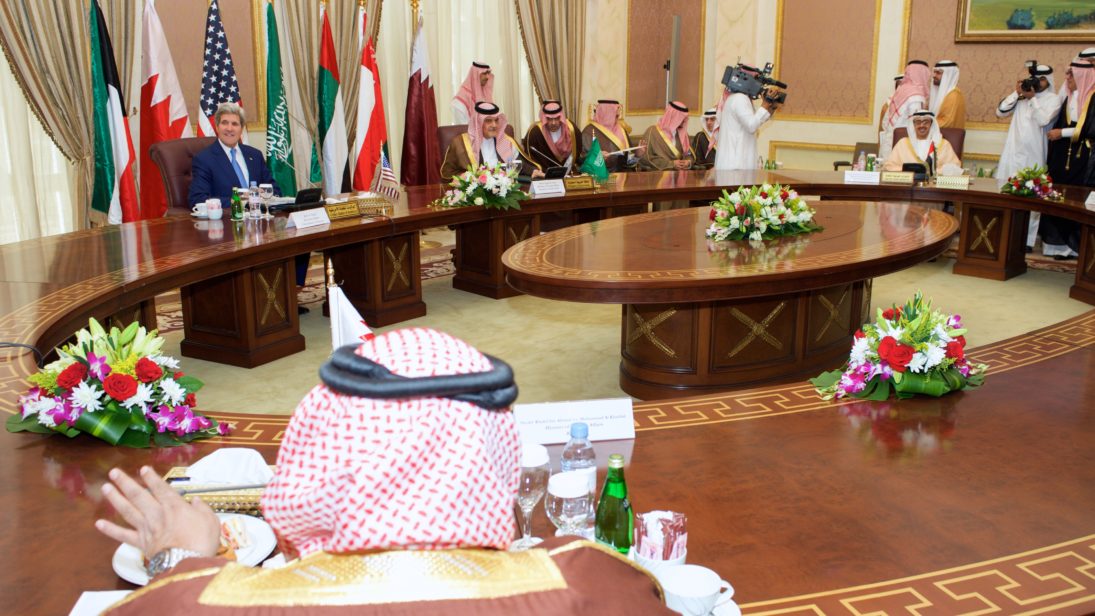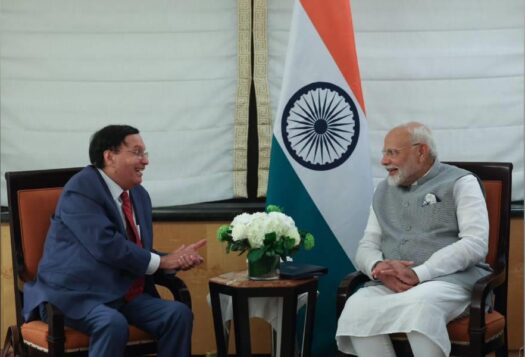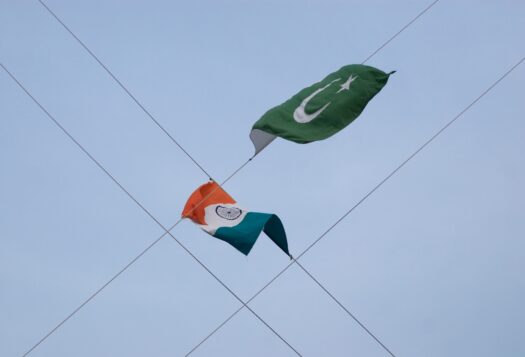
The international community felt some respite when Iran settled the nuclear deal with six world powers during the talks held last month in Lausanne. Conversely, some Gulf and Middle Eastern states, however, considered the agreement a threat for regional security and characterized it as a confidence booster for Iranian nuclear maneuvering in the future. Saudi Arabia in particular feels severe discomfort with the latest developments and it has vividly signaled reservations.
A few developments signify the distress that the Saudis now have with the United States. The Saudis have found themselves in an odd position since Iranian nuclear and diplomatic activities began to challenge its position in the region. Riyadh had never wished Iran to be seen as a nuclear power with an enhanced regional role. To impede Iran from its regional strides, Saudi Arabia kept a cordial relationship with the United States, with whom Iran has had an acrimonious relationship, especially after the 1979 Islamic Revolution.
Moreover, Tehran and Riyadh both have also remained in covert – and sometimes overt – wrangling in a bid to be the dominant regional force. The latest is the Yemen crisis. The Sunni-dominant Saudi state wanted to shelter the existing democratic government under Abd Rabbuh Mansur Hadi, who fled to Riyadh after Houthi rebels ousted him and overtook the capital of Sanaa. Inversely, Shiite Iran never sought to back up Mansur Hadi or his government and therefore has given clandestine aid (military and economic)to the Houthi Rebels battling against the government and Saudi-led allied forces. Washington didn’t come to assist Saudi Arabia (as had been expected), which compelled Riyadh to look towards old friend Pakistan for help. Several Saudi ministers paid crucial visits to Islamabad last month, and the Pakistani Prime Minister Nawaz Sharif and Army Chief Raheel Sharif also went to Saudi Arabiafor consultations. The parliament of Pakistan has decided against the proposal of becoming a front line ally of Saudi Arabia in its fight against the Houthi but, the long standing friendship and the fear of losing the lead Middle Eastern companion has kept Pakistan away from implementing parliament’s verdict purely. The minute attention to the Saudi plea for actions against the Houthis and Riyadh’s request to Islamabad for assistance are solid reasons for the fluctuating nature of U.S.-Saudi ties.
There is another issue that has unsettled Gulf leaders. Iran assured readiness to limit its nuclear program in exchange for the lifting of economic sanctions and freedom to utilize frozen assets -these aspects can boost the Iranian economy and could restore the confidence of overseas investors, leading to greater Foreign Direct Investment (FDI). The Gulf States believe this could strengthen Iran’s regional influence and give it greater means to back up militant groups (like Hezbollah) and to continue to interfere in Iraq, Yemen, and Syria.
Above all, the principal development is King Salman’s refusal to come to Camp David for the scheduled meeting of Gulf leaders there. President Barak Obama announced this meeting the same day nuclear talks in Lausanne reached a point of mutual understanding. This rejection has sent a signal – U.S. policymakers have started to contemplate how best to maintain good ties with the Gulf allies. Washington has had the luxury of positive relations with Saudi Arabia, and it maintains close relations with other regional states as well. There are roughly 35,000 U.S. service members stationed in the Gulf, where a number of major air and naval bases serve as the headquarters for U.S. military operations throughout the region. However, the agreement with Iran has sent a shockwave through the Gulf and these relationships seem to be in jeopardy.
After Tehran’s deal with the West, Gulf leaders are hoping that President Obama would assuage regional concerns by bringing the region under the vortex of NATO type “guardian organization” or at least a deal similar to NATO’s scope and extent. A NATO concept seems for the preference of Gulf leaders, but for the United States it is not a likely choice. Policymakers think that even if the United States keeps Gulf States sheltered from an Iranian attack, it cannot guarantee against the instigation of proxies in the region (originating in Yemen, Iraq and Syria) simultaneously. With a cautious approach, the United States has given billions of dollars’ worth of weapons, executed joint military exercises, and provided military training to Gulf states – which it believes is the best choice in the given delicate nature of Iran-Gulf ties.
To a lesser extent, Washington’s contemporary approach (lowering its energy reliance on Riyadh and by cutting back on oil imports from Saudi Arabia, while increasing domestic production), has also put bilateral relations in flux. However, imports have not deliberately declined to a level that could trigger prices to soar up from the current level. (Additionally, the United States also wants to keep oil imports coming from Saudi Arabia, in part so that Russia cannot replace her and stockpile cheap oil).
Keeping Iran non-nuclear can only be achieved gradually. The recent development – by which Iran would limit its nuclear program – is a step forward. Lifting economic sanctions and allowing Tehran to come to mainstream international politics is certainly a welcome step that should have been applauded by the Middle Eastern nations too. Because the more Tehran would engage itself in diplomatic maneuvering and economic activities, the less would be the chance of its pursuit of nuclear arsenals. Sanctions and diplomatic pressure are not the only means of achieving non-proliferation objectives. Similarly, Middle Eastern states’ engaging economically with Iran would lessen the chances of confrontation.
If the nuclear deal is accomplished, (June 30 is the self-imposed deadline) the Obama administration could try to inspire Iran to play a more positive part in Syria, Yemen, and in entire region. Many are cynical that this may produce undesirable results, but testing the likelihood of extended cooperation beyond the nuclear deal is indeed worth the effort.
***
Image: U.S. Department of State, Flickr


